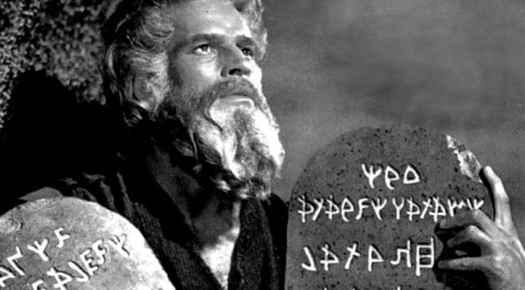
State Rep. Credell Calhoun, a Mississippi legislator, proposed a bill that is unconstitutional. It would require teachers to recite the Ten Commandments every morning before the first class.
House Bill 1100 would amend existing laws in the following ways:
- In each public school classroom, the local school governing board shall require a brief period of quiet reflection for not more than sixty (60) seconds at the opening of school upon every school day.
- In every classroom, school, auditorium, and cafeteria, there must be posted an 11×14 (minimum) display featuring the Ten Commandments and the U.S. motto, “IN GOD WE TRUST.”
- The school board of each school district shall require the teachers in that school district to have the Ten Commandments recited aloud at the beginning of the first hour of class each day that school is in session. Any student or teacher who objects to reciting the Ten Commandments must be excused from participating without penalty.
The first requirement is already allowed. Actually, 36 states have legislation related to school moments of silence, 23 of which permit the moments while 13 require the moments. The Supreme Court has repeatedly stressed that government actions in such matters must have a clearly secular purpose. School-led moments of silence, unlike school-led prayers, are often permissible because they are not inherently religious and do not coerce participation in a religious act. If some law forces students to pray during those moments of silence, it is clearly unconstitutional.
The second and the third requirement are problematic and the Court would probably reject them as unconstitutional. In the United States, school prayer cannot be required of students in accordance with the Establishment Clause of the First Amendment to the United States Constitution. The first part of the amendment ("Congress shall make no law respecting an establishment of religion") is known as the Establishment Clause of the First Amendment, while the second part ("or prohibiting the free exercise thereof") is known as the Free Exercise Clause. Court already ruled in few cases that displays of the Ten Commandments in public institutions were unconstitutional because they were not clearly integrated with a secular display, and thus were considered to have a religious purpose.
This bill has no educational character and no student will benefit from learning “Thou shalt not take the name of the Lord thy God in vain” or “Thou shalt not covet thy neighbor’s house, thou shalt not covet thy neighbor’s wife.” For now, the legislation is in the House Committee on Education and let hope it would not pass further.
Photo Credits: The Telegraph
